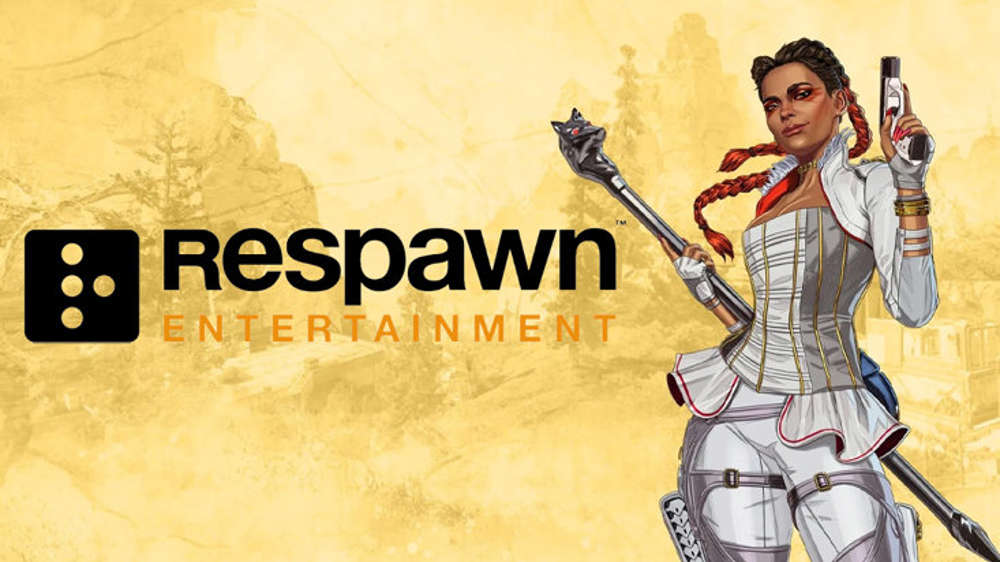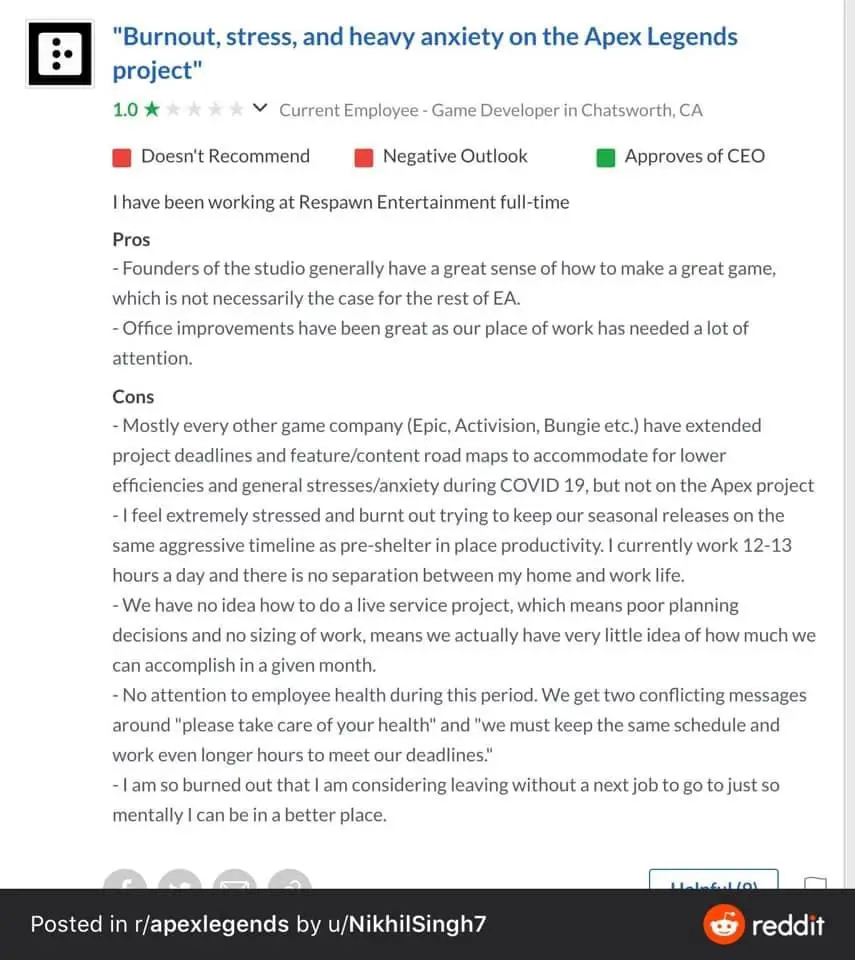Burnout: It’s Not Just For Players
Game developers are burning out at an increasing rate

Katie Memmott
02nd Aug 2020 18:30

We’re all familiar with burnout when it comes to esports. Pro players practice for unrealistic periods of time, spend dozens of hours travelling the world to play in tournaments, and essentially burn the candle at both ends far too often. But what we don’t see as much, are the several examples of the game developers themselves burning out, due to the heavy stress placed on them to maintain, update, and improve upon the game the esport itself is dependent upon.
Developers Respawn Entertainment have come under fire recently, as one of the devs working on battle royale Apex Legends posted their take on their position, including citing “heavy anxiety” in their non-recommendation for anyone looking to take on a role within the company.

The anonymous employee in question, left the negative review on company review site Glassdoor, and stated they were a “current employee”. Extra time and leeway would probably be expected for projects during the current COVID era – but apparently not in this case.
The employee stated they felt “extremely stressed and burnt out trying to keep our seasonal releases on the same aggressive timeline as pre-shelter in pace productivity” going on to say, “I currently work 12-13 hours a day.”
This, unfortunately, isn’t the first instance of game devs seemingly being overworked and faced with constant pressure of almost unmeetable deadlines on any one project.

The now-defunct game studio Telltale Games (The Walking Dead, The Wolf Among Us) left the gaming industry in a rather spectacularly bleak manner.
After winning a prestigious award for The Walking Dead in 2012 (Spike Video Game Awards’ game of the year) only five years later, cracks started to form in Telltale’s cell-shaded foundations.
After years of mumblings regarding “toxic” work environments, including overworking staff, poor management, and the embodiment of this culture, in 2017, Telltale let go of 90 developers in a shock move for the gaming industry, and the studio itself.
The Verge reported that anonymous ex-employees they spoke to, stated they worked up to 20 hours a day, and more than 100 hours a week to meet the tight deadlines given to them by Telltale.
This "overworking" was attributed, in part, to the success of the studio, which could also be the case with Respawn Entertainment (Apex Legends). As a game grows, so must its team – but this can cause casualties.
As Telltale grew larger, so too did its team. The company’s rapid expansion left many feeling unsure about their job security, as new staff came and went in a revolving door system, with no one ever feeling sure of their position, or indeed, their duties. “Very rarely people were writing things down on a wiki or a confluence page or any sort of documentation,” said a former employee to The Verge.
“We went from a small and scrappy team to kind of a giant studio full of 300-plus people,” says former Telltale programmer and designer Andrew Langley. “You walk around the office, and you don’t really recognize anybody anymore.”
Apex Legends director Chad Grenier responded to the Apex devs Glassdoor review and acknowledged the problems outlined within, yet insisted that the deadlines are "flexible".
"Like a broken record I continuously asked that people speak up to their managers or producers if they will not be able to get their work done on time without crunching," he said. "Delays would be okay, we just need to know one is needed."
While Grenier's point is valid, it didn't entirely leave the fans of Apex Legends reassured that the developers of their favourite game weren't being mistreated.
I'm definitely not trying to say this person who wrote the review is wrong, and I'm not defending myself against the review.
This phenomenon, often referred to as "crunch culture", paints a picture of a toxic workplace environment, where employee health is put aside in favour of doing whatever it takes to meet a strict deadline.
This kind of unsustainable work “ethic” damaged Telltale beyond repair, and if Respawn don’t address these issues, Apex Legends devs could fall to the same fate.
Images via Telltale Games | Respawn Entertainment

About The Author
Katie Memmott
Katie is the former Sub Editor and Freelancer Coordinator at GGRecon.



























